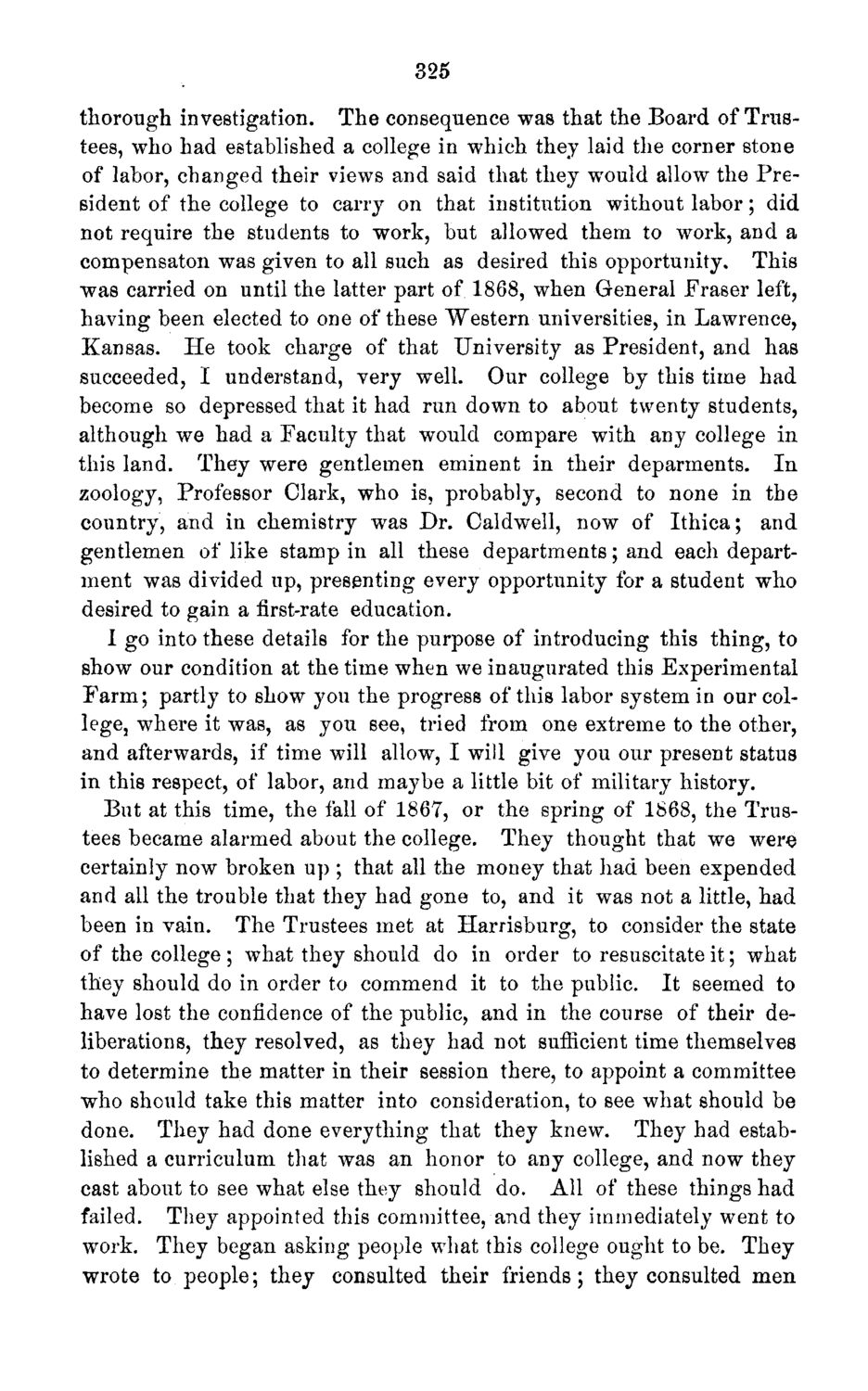| |
| |
Caption: Board of Trustees Minutes - 1871
This is a reduced-resolution page image for fast online browsing.

EXTRACTED TEXT FROM PAGE:
325 thorough investigation. The consequence was that the Board of Trustees, who had established a college in which they laid the corner stone of labor, changed their views and said that they would allow the President of the college to carry on that institution without labor; did not require the students to work, but allowed them to work, and a compensaton was given to all such as desired this opportunity. This was carried on until the latter part of 1868, when General Eraser left, having been elected to one of these "Western universities, in Lawrence, Kansas. He took charge of that University as President, and has succeeded, I understand, very well. Our college by this time had become so depressed that it had run down to about twenty students, although we had a Faculty that would compare with any college in this land. They were gentlemen eminent in their deparments. In zoology, Professor Clark, who is, probably, second to none in the country, and in chemistry was Dr. Caldwell, now of Ithica; and gentlemen of like stamp in all these departments; and each department was divided up, presenting every opportunity for a student who desired to gain a first-rate education. I go into these details for the purpose of introducing this thing, to show our condition at the time when we inaugurated this Experimental Farm; partly to show you the progress of this labor system in our college, where it was, as you see, tried from one extreme to the other, and afterwards, if time will allow, I will give you our present status in this respect, of labor, and maybe a little bit of military history. But at this time, the fall of 1867, or the spring of 1868, the Trustees became alarmed about the college. They thought that we were certainly now broken up ; that all the money that had been expended and all the trouble that they had gone to, and it was not a little, had been in vain. The Trustees met at Harrisburg, to consider the state of the college ; what they should do in order to resuscitate it; what they should do in order to commend it to the public. It seemed to have lost the confidence of the public, and in the course of their deliberations, they resolved, as they had not sufficient time themselves to determine the matter in their session there, to appoint a committee who should take this matter into consideration, to see what should be done. They had done everything that they knew. They had established a curriculum that was an honor to any college, and now they cast about to see what else they should do. All of these things had failed. They appointed this committee, and they immediately went to work. They began asking people what this college ought to be. They wrote to people; they consulted their friends; they consulted men
| |